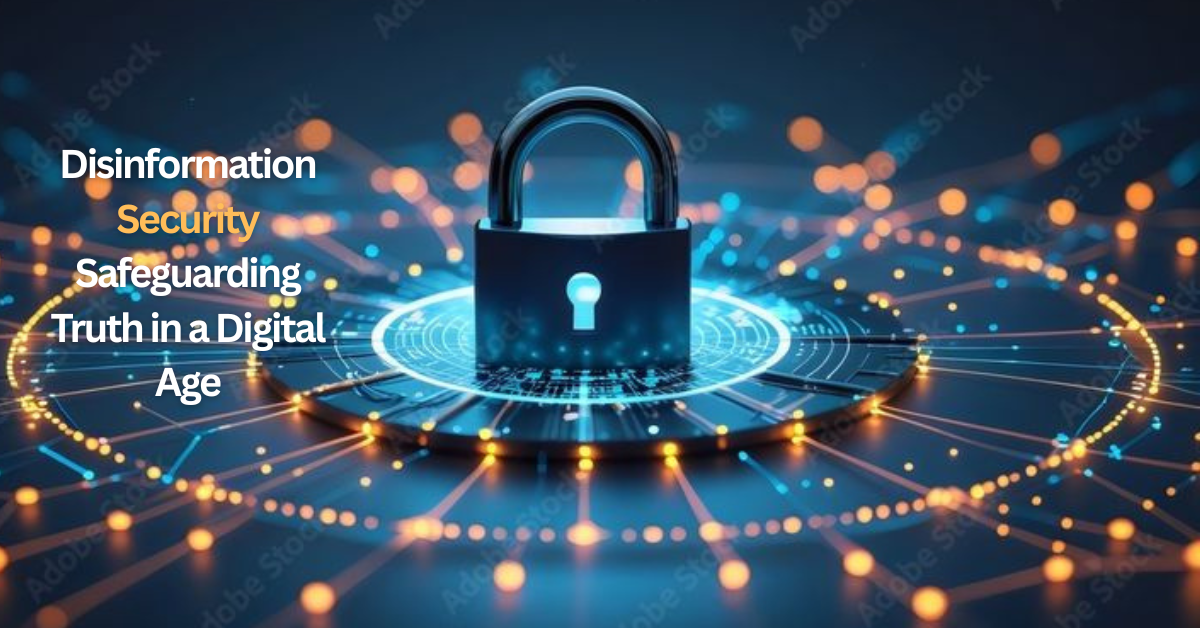In an era where false narratives spread faster than facts, the importance of disinformation security has never been greater. At Cyprus Magazine, we recognize that the safety of societies, institutions, and even personal reputations depends on the ability to protect truth. Disinformation not only misguides individuals but also erodes trust in media, politics, and education.
By understanding how misinformation is created, shared, and consumed, readers can equip themselves with the tools to stand firm against its influence. This article explores the growing importance of disinformation security, providing actionable insights, strategies, and knowledge that empower people to defend truth in a connected world.
The Hidden Dangers of Disinformation
Disinformation is more than just a misleading story; it is a strategic weapon used to manipulate opinion and destabilize trust. From fabricated news reports to manipulated videos, the scope of disinformation is vast and constantly evolving. What makes it so dangerous is not just the content itself but its ability to exploit emotional triggers that bypass rational thought.
Understanding Disinformation Security
Disinformation security refers to the practices, tools, and cultural awareness designed to combat false information. It is not limited to technical safeguards but also includes education, critical thinking, and media literacy. For communities and organizations, building resilience against disinformation is as crucial as maintaining cybersecurity.
The Role of Technology in Protecting Truth
Technology can be both the cause and the cure in the battle against disinformation. Artificial intelligence is often used to create deepfakes or manipulate digital content, yet the same technology can also help detect patterns of fake news distribution. Disinformation security strategies therefore rely heavily on advanced monitoring tools and algorithms that track suspicious content across digital channels.
Social Media as a Double-Edged Sword
Social media platforms have become central arenas in the spread of false narratives. While these platforms allow information to travel rapidly, they also make it difficult to filter fact from fiction. Disinformation security demands that users develop digital literacy and that companies implement stricter measures to verify sources, flag falsehoods, and promote transparency.
Steps to Strengthen Disinformation Security
Protecting against disinformation requires a multi-layered approach that combines individual responsibility with institutional frameworks. Some practical steps include:
- Cultivating critical thinking before sharing any post
- Verifying sources through reputable outlets
- Cross-checking stories across multiple platforms
- Engaging in constructive discussions to challenge misinformation
- Encouraging media literacy education within communities
Building Resilient Communities Against False Narratives
Communities can create strong defenses against disinformation by fostering open discussions and encouraging diverse perspectives. By teaching individuals to recognize persuasive manipulation techniques, societies can reduce the spread of harmful narratives. Education campaigns and awareness initiatives remain vital components of disinformation security.
The Role of Journalism in Disinformation Security
Journalists carry the responsibility of being gatekeepers of truth. Ethical reporting, transparency in sources, and fact-checking are vital tools that media outlets must embrace. At Cyprus Magazine, we believe that accurate journalism is one of the strongest shields against disinformation.
Disinformation in Politics and Governance
Governments are often prime targets of disinformation campaigns designed to sway public opinion or destabilize trust. Disinformation security in governance involves proactive communication strategies, swift debunking of rumors, and collaboration with international partners to track and mitigate hostile campaigns.
Corporate Responsibility in the Fight Against Falsehoods
Corporations also face reputational risks when disinformation spreads about their products or policies. Businesses that invest in disinformation security safeguard their brand image, protect consumers, and maintain trust. Transparent communication, rapid response strategies, and corporate social responsibility initiatives are central to this defense.
Education as a Shield Against Disinformation
Educators play a vital role in building awareness about the risks of false information. Media literacy courses, classroom debates, and the integration of fact-checking skills help prepare younger generations to critically assess the information they encounter online. This form of disinformation security is long-term but highly effective.
Global Cooperation for Truth Protection
Disinformation is not confined to borders. International cooperation is essential in detecting large-scale campaigns and dismantling networks that spread coordinated falsehoods. Countries must share intelligence, research, and strategies to reinforce disinformation security worldwide.
Practical Guide to Identifying Disinformation
Disinformation can often be spotted if readers know what to look for. Here are some practical indicators:
| Indicator | Warning Sign | Action Step |
| Source Reliability | Unknown publisher | Verify credentials |
| Emotional Trigger | Extreme fear or anger | Pause and reflect |
| Lack of Evidence | No data or citations | Seek supporting proof |
| Manipulated Media | Altered visuals | Use verification tools |
By applying these steps, individuals strengthen their personal role in disinformation security.
How Businesses Can Educate Consumers
Companies can contribute by running awareness campaigns, sharing tips on identifying scams, and providing transparent updates on their platforms. Building a well-informed customer base ensures both brand loyalty and societal protection.
Case Studies of Successful Disinformation Security
Across the globe, several organizations have successfully minimized the impact of disinformation by employing fact-checking teams, rapid-response communication units, and community partnerships. These examples highlight how proactive measures not only protect truth but also enhance credibility.
Future Challenges in Disinformation Security
As technology evolves, disinformation will become harder to detect. Deepfake videos, AI-generated voices, and synthetic content will test existing defenses. Future disinformation security must therefore evolve in parallel, ensuring that individuals and institutions remain one step ahead.
The Human Role in Protecting Truth
Despite the advancements in technology, human judgment remains irreplaceable. Critical thinking, empathy, and responsible sharing are human qualities that strengthen disinformation security. Ultimately, it is the collective responsibility of individuals to ensure that truth prevails.
FAQs
What is disinformation security?
Disinformation security is the practice of safeguarding societies, businesses, and individuals from the spread of false or misleading information.
Why is disinformation a growing concern?
Disinformation influences public opinion, undermines trust, and can destabilize governments, businesses, and communities.
How can individuals fight disinformation?
By verifying sources, avoiding emotional sharing, and practicing media literacy, individuals can play a vital role in stopping false narratives.
What role does technology play in disinformation security?
Technology both creates and combats disinformation, with tools like AI detecting fake content while also generating synthetic material.
How does disinformation affect businesses?
False claims can damage brand reputation, mislead consumers, and cause financial losses, making corporate disinformation security essential.
Conclusion
Disinformation security is no longer optional; it is a necessity for every sector of society. By building awareness, fostering education, and embracing advanced technology, communities can reduce the risks posed by false information. At Cyprus Magazine, we remain committed to promoting truth, resilience, and the tools needed to safeguard societies in this ever-changing digital landscape.




